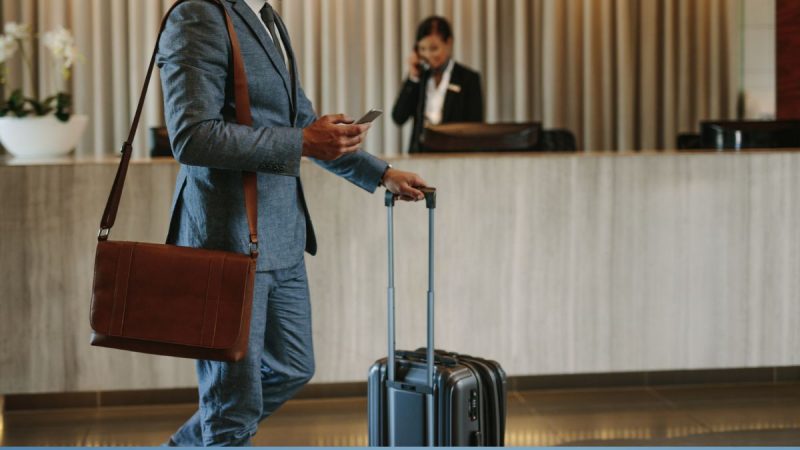India’s corporate travel sector is experiencing a major transformation. Valued at over $10.6 billion (approximately ₹88,000 crores), it is adapting to new work models and technological advancements. A recent report by Deloitte reveals that the top 100 companies in India spend more than $2.2 billion (around ₹18,000 crores) on business travel. This spending is significant as companies focus on enhancing employee experiences while optimising costs.
India’s Top 100 Companies Report Spending Over $2.2 Billion On Business Travel
The market for corporate travel in India is expected to grow at a compound annual growth rate (CAGR) of 10.1%. By FY2030, it could double to $20.8 billion (about ₹170,000 crores). In contrast, the overall travel market in India is projected to reach $97 billion (approximately ₹800,000 crores). As businesses adapt to hybrid work models post-pandemic, the importance of Travel Management Companies (TMCs) is on the rise. TMCs drive innovation and cost efficiency while focusing on sustainability in corporate travel.
Technology plays a crucial role in this shift. TMCs are now using AI-powered chatbots and voice-assisted booking systems. These innovations enhance the experience of business travellers. They streamline the booking process and provide personalised solutions that cater to the preferences of modern professionals. Real-time data analytics also helps in meeting evolving travel needs.
Also Read: Come December, Qatar Citizens Can Travel To The US Visa-Free!
Cost Efficiency In Corporate Travel
A recent survey highlights the emphasis on cost efficiency in corporate travel. Travel expenses account for a substantial part of organisational budgets. On average, 35-40% of employees travel at least once a year. Domestic trips usually last under four days, while about 28% of international travellers stay over a week. Small and midsize companies spend up to ₹1 crore annually on travel. In contrast, larger organisations with more than 5,000 employees see travel expenses scale with workforce size, with some spending over ₹2,600 crores in FY23.
Demand for ancillary services is rising as well. The survey found that 72% of respondents want taxi services, while 63% are seeking visa assistance through travel platforms. These services are becoming vital for enhancing the overall travel experience.
The growing economy has led to an increased demand for personalised and seamless travel experiences that align with both professional and personal values. Even with hybrid work cultures becoming the norm, face-to-face meetings remain essential. They help build strong professional relationships, and the MICE (Meetings, Incentives, Conventions, and Exhibitions) sector will continue to drive corporate travel demand.
The Deloitte report underscores how TMCs are addressing these changing demands. By integrating AI-led solutions and focusing on sustainability, TMCs are paving the way for future corporate travel. Nearly 50% of corporate travellers now prioritise eco-friendly practises. Furthermore, the growth of India’s SME sector, which makes up 30% of the corporate travel market, highlights the sector’s potential for further evolution.
Cover Image Courtesy: Canva (Representative Image)
For more such snackable content, interesting discoveries and the latest updates on food, travel and experiences in your city, download the Curly Tales App. Download HERE.
